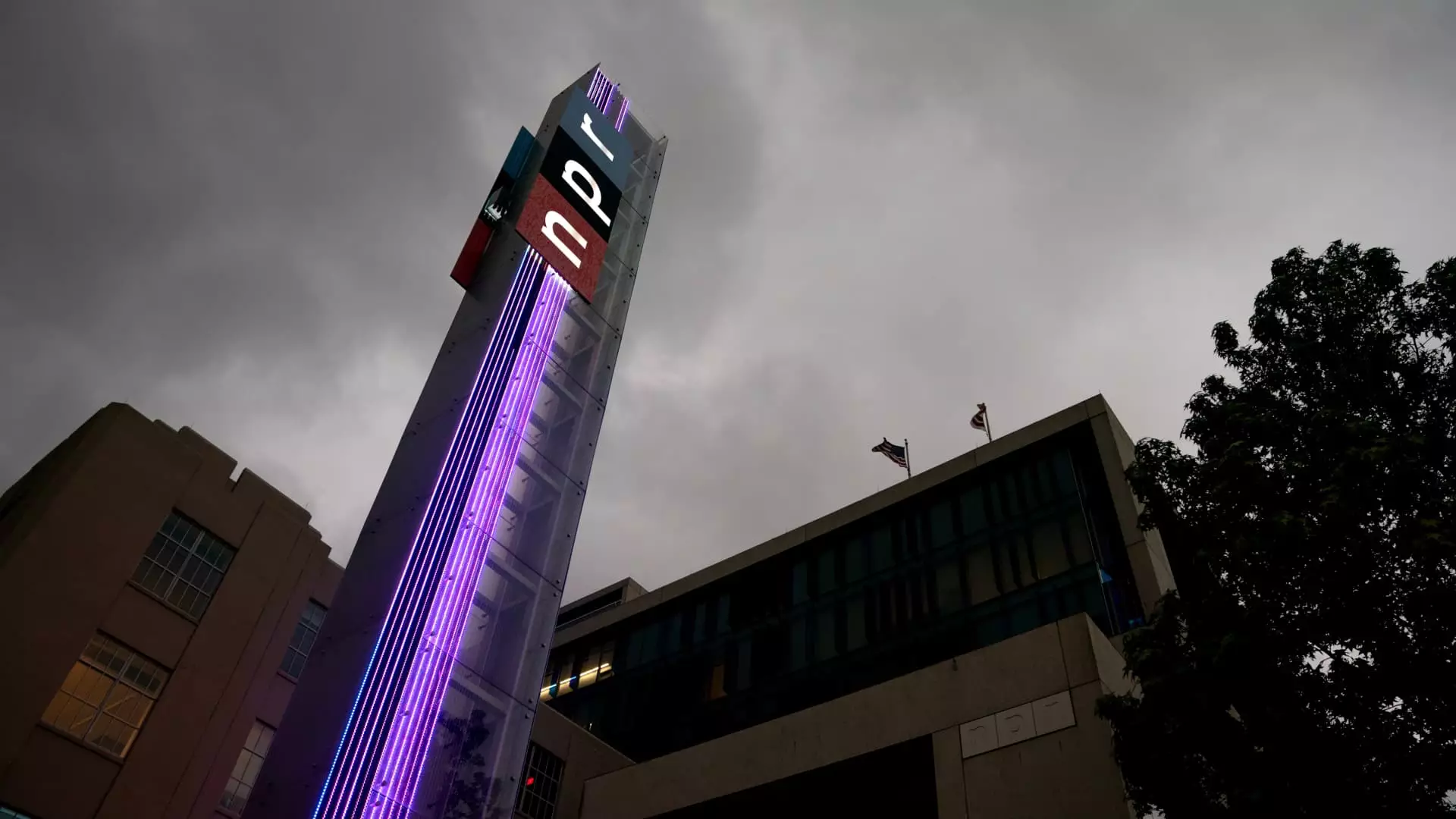In an alarming turn of events, President Donald Trump’s executive order to cut federal funding for National Public Radio (NPR) and other public broadcasters presents not only a challenge to the organizations themselves but to the very fabric of democratic discourse in the United States. The lawsuit filed by NPR and three of its member stations signals a critical moment for free expression and press independence. This isn’t merely about financial matters; it’s an all-out assault on the principles that uphold a healthy democracy. Public radio has long served as a trusted source of information for countless Americans. By deliberately undermining their funding mechanism, the administration is sending a clear message: dissenting voices are unwelcome, and information needs to be controlled.
The First Amendment under Fire
NPR’s legal challenge leverages a powerful argument centered on the First Amendment. This constitutional protection is not just a legal provision; it embodies the ethos of American democracy itself. The lawsuit articulates how Trump’s executive order infringes upon the right to free speech and press, a foundational element that safeguards against governmental overreach. This administration’s selective approach to funding—claiming that it is aimed at “bias”—is an equally insidious tactic that seeks to stifle dissent and manipulate the media landscape. When the government attempts to control what is deemed acceptable journalism, it bridges a perilous divide into censorship.
The fundamental problem here is the stark contradiction within the administration’s reasoning. While officials argue that public funding diminishes journalistic independence, they fail to recognize that access to diverse information and perspectives enhances democracy. The existing arrangement—whereby the Corporation for Public Broadcasting channels federal money to local stations—is designed to maintain editorial independence, a principle that could be jeopardized if funding is retracted or manipulated.
The Danger of Retaliation and Control
NPR’s complaint hits at the heart of a broader, more disturbing pattern. The order isn’t simply a financial maneuver; it is a blatant act of retaliation against media outlets that dare to criticize the administration. This blatant intimidation is the very definition of viewpoint discrimination, undercutting the essence of independent journalism. It poses a threat not only to NPR but also to the notion that diverse opinions can coexist in our public sphere. Such an environment of fear and control stifles creativity and diverse narratives that are vital for a thriving democracy.
Just consider the implications of shuttering funding for public media. It would eliminate a platform that serves an audience yearning for quality journalism—a platform that has been cultivated over decades and embodies some of the best reporting in the nation. The assault on NPR sends a chilling message to all journalists and activists: speak out, and you risk losing not just your livelihood but also the very resources necessary for your work.
The Path Ahead for Public Broadcasting
The public should not underestimate the significance of NPR’s push against the executive order. This lawsuit could pave the way for a renewed focus on press freedoms at a time when they are gravely threatened. The fallout from Trump’s actions is not merely a matter of budget cuts—it’s about the erosion of the independent journalism that informs the public and holds power accountable.
As they seek to block this executive order, NPR and its allies are not just fighting for their survival; they are standing up for the importance of unfettered access to diverse narratives that reflect every corner of society. In an era overshadowed by a volatile information landscape, it’s crucial for citizens to rally behind institutions dedicated to safeguarding journalistic integrity.
In an age where “fake news” accusations are wielded as weapons rather than legitimate critiques, we must also reflect on our responsibility as consumers of information. It falls on us to advocate for a media landscape that values transparency and ethical reporting. The very survival of our democratic ideals rests on independent voices being allowed to flourish free from fear of retaliation or suppression. If we fail to protect them, we risk losing a critical avenue through which to hold power accountable, thus weakening the very democracy we strive to uphold.


Leave a Reply